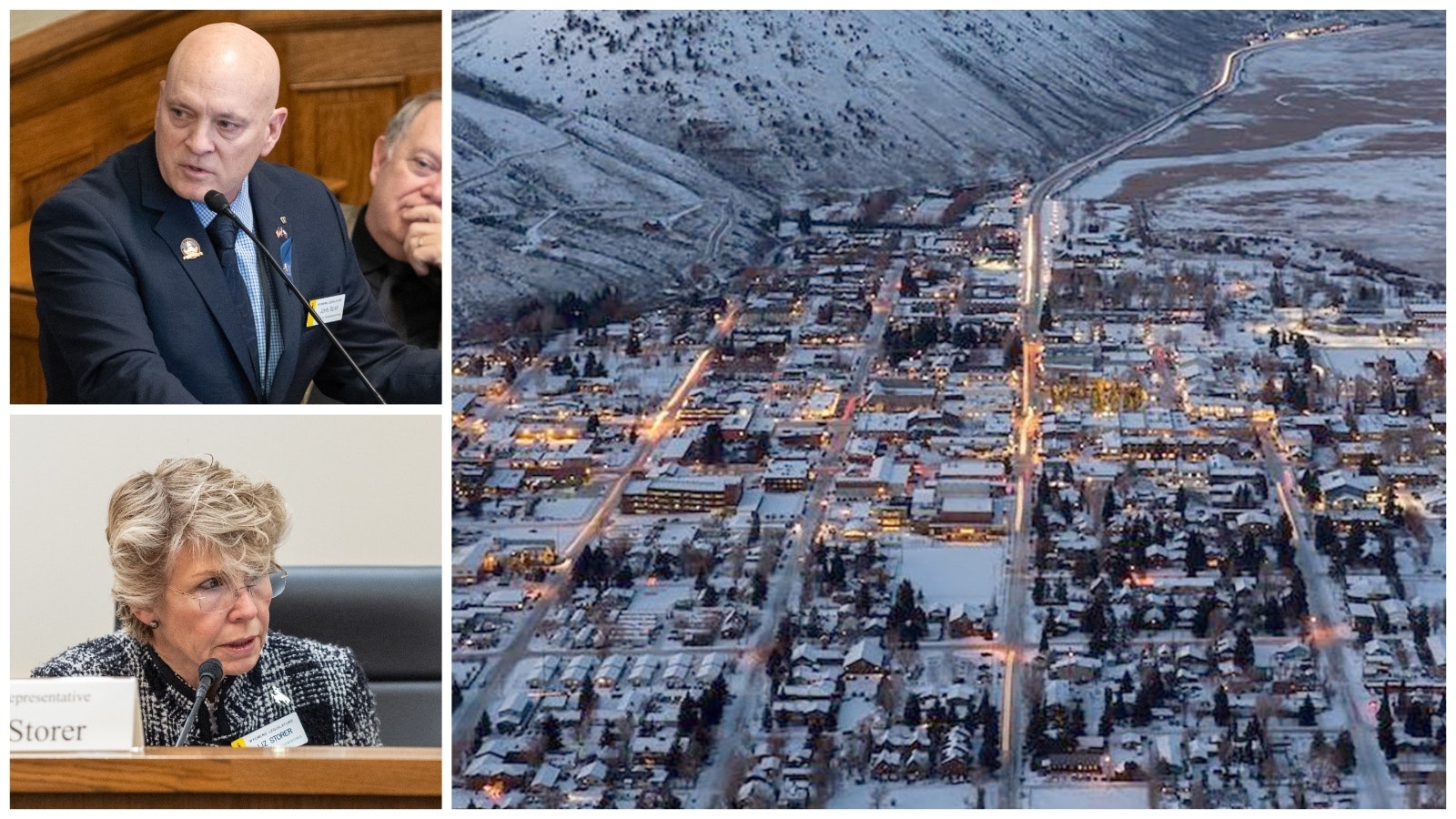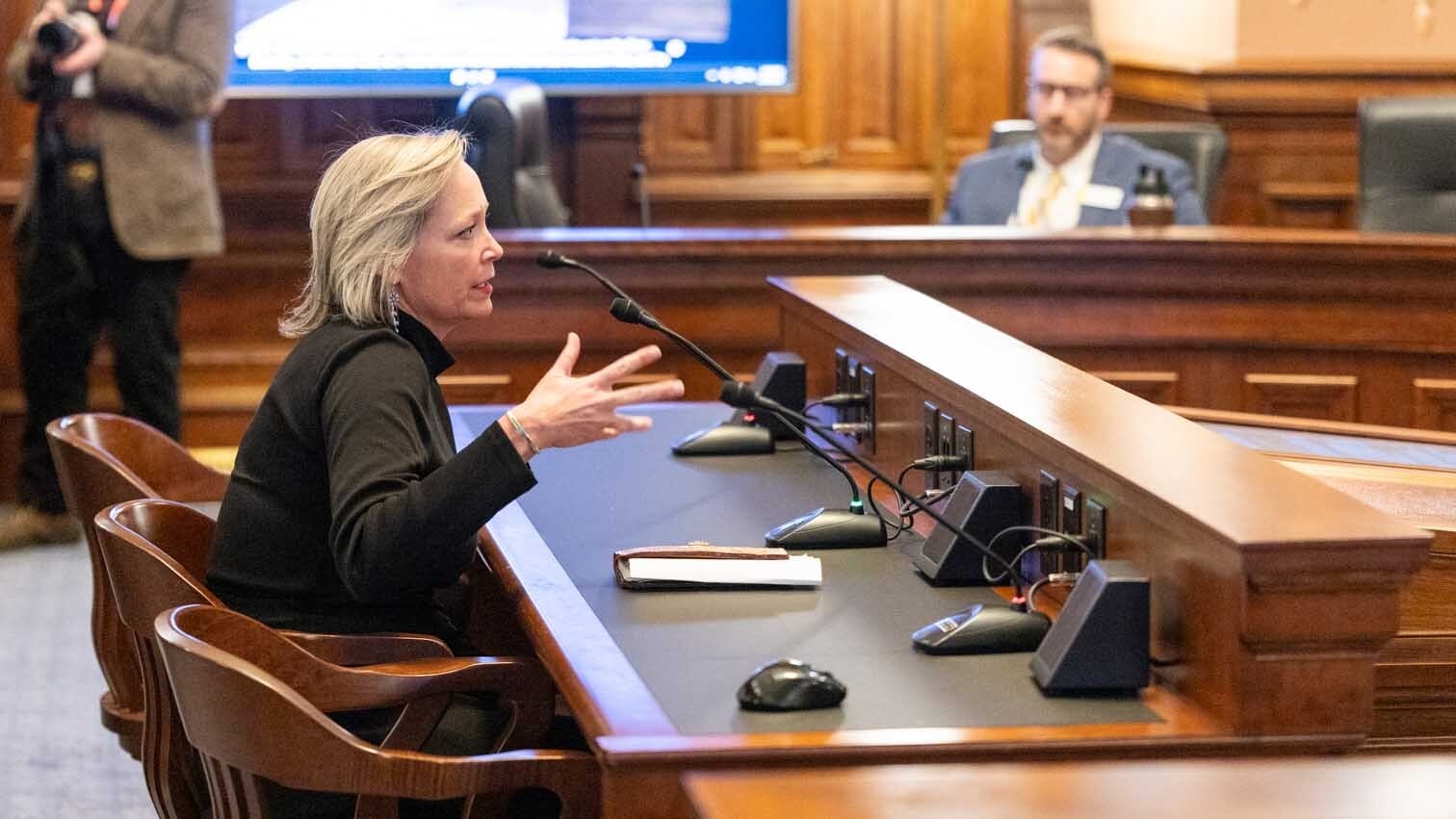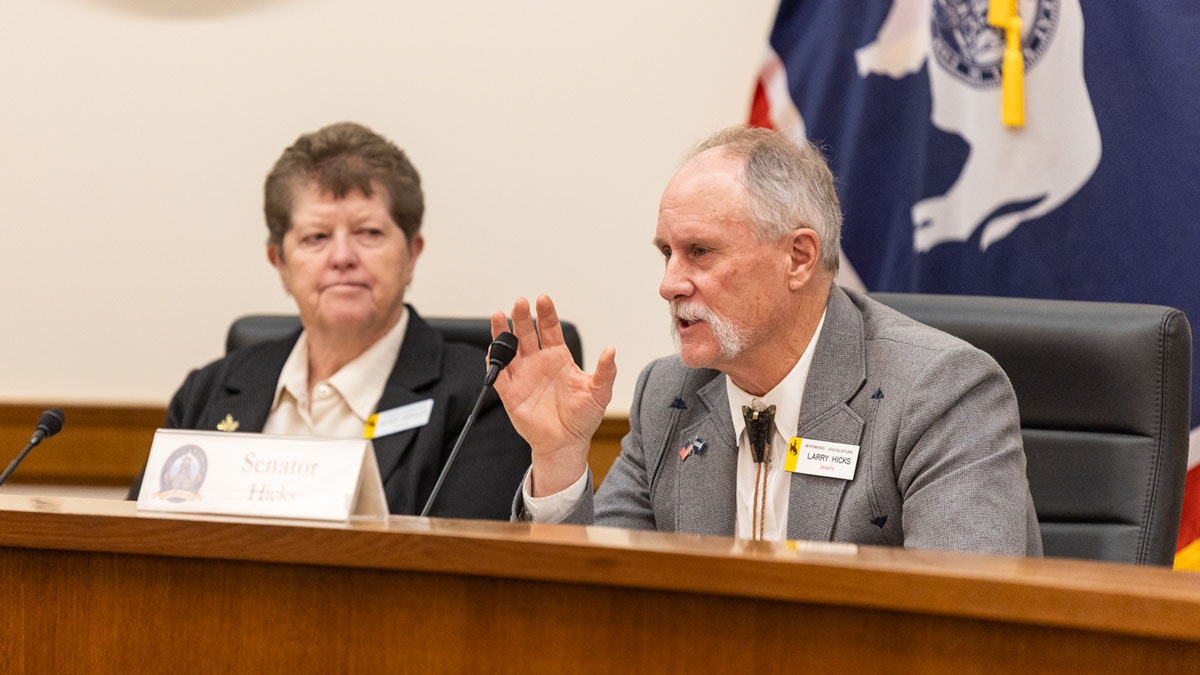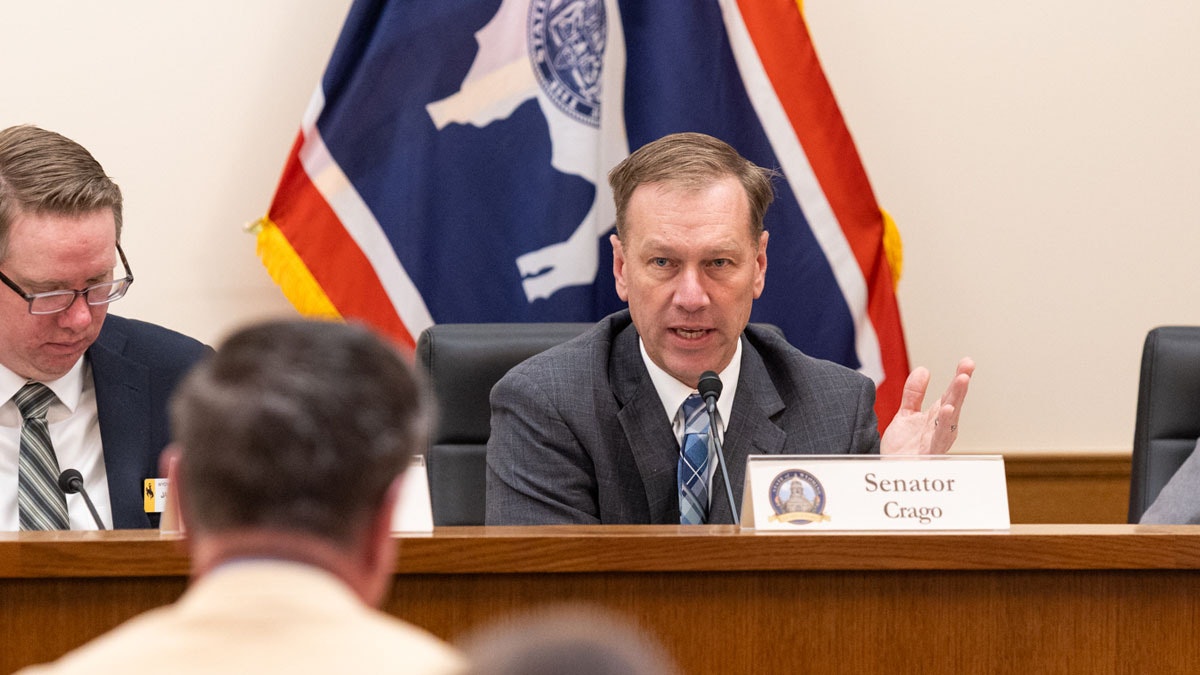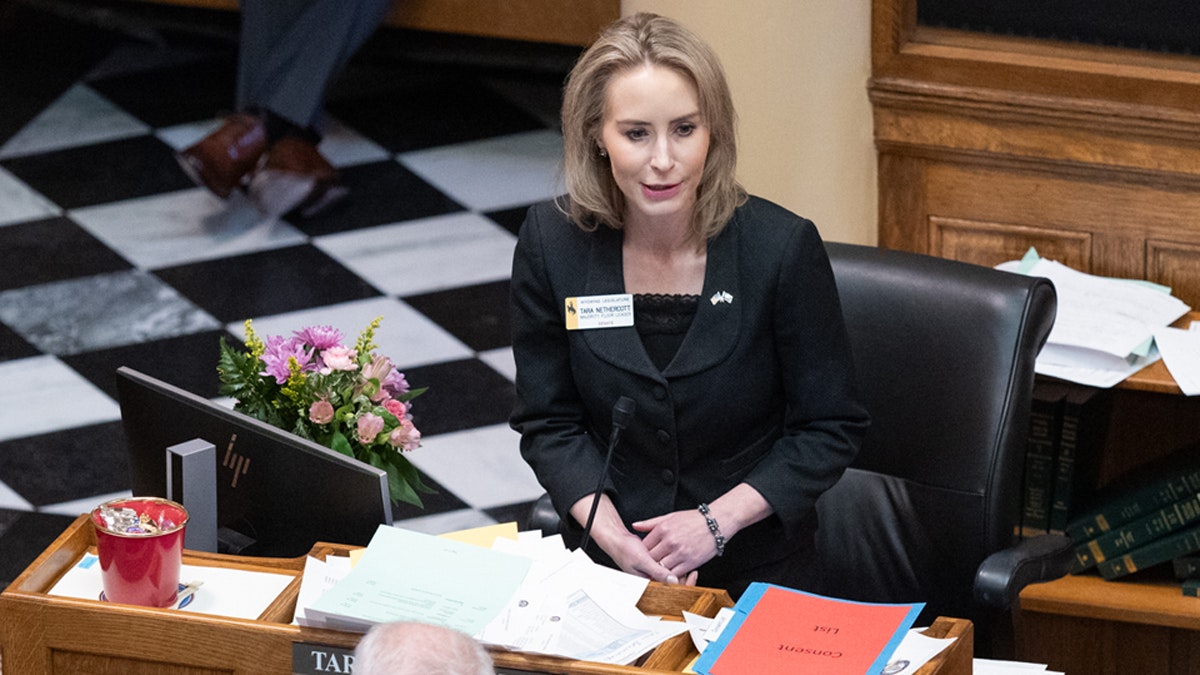One of the most far-reaching property tax relief bills still alive in the 2024 legislative session advanced past a Wyoming House committee Friday.
Senate File 54 as amended Friday would cut property taxes by 25% for single-family homes worth $3 million or less in Wyoming. The bill would only go into effect for this current tax year and would only apply to residential structures.
SF 54, as previously written, would have exempted $200,000 of fair market value from all homes in Wyoming and all associated land.
State Rep. Liz Storer, D-Jackson, brought an amendment Friday changing the exemption to percentage based.
Storer said she did this to provide an equitable tax break across all Wyoming while continuing to provide local schools and governments with a solvent stream of revenue. The expected fiscal impact of the bill would be a $109 million hit to Wyoming’s bottom line.
“We have to look at this as a bubble, exacerbated by limited housing statewide,” she told Cowboy State Daily.
‘It’s Fairness’
But she also feels sympathy for those in her home Teton County who have seen their property tax rates increase by double-digit percentages or even double over a single year.
Many homes in her community are worth well more than $1 million. She expressed concern that if a 25% break was applied across the board in Wyoming, it would lead to an even greater influx of wealthy people moving into her community and further exacerbating the housing market there.
“The fear of the flat 25% rate is that it would incentivize out-of-state investors, incentivize them to come and buy and hold property and not even occupy them,” said Republican Rep. Andrew Byron, also of Jackson.
The equitable approach is what at least temporarily earned the support of Freedom Caucus members Reps. John Bear, R-Gillette, and Tony Locke, R-Casper, to vote for the bill as written coming out of committee.
“It’s fairness,” Bear told Cowboy State Daily. “We need to have a full and equitable tax system.”
Rep. Ember Oakley, R-Riverton, attempted to bring an amendment lowering the threshold to homes worth $1.5 million or more, but this was voted down by the committee 5-3.
Oakley proposed a few other amendments attempting to reduce the fiscal impacts of the bill, which Locke opposed.
“We need to get some relief out there to the people,” Locke said. “This cuts out another form of relief.”
The Teton Dilemma
People with homes worth more than $3 million would still be impacted by the exemption, but would only be assessed off the first $3 million value of a home.
Storer said the concept behind her amendment “is to give enough relief to people at the higher end, while also balancing out the lower end.”
She and Byron mentioned how many people in Teton and Lincoln counties bought their homes for less than $1 million, but because of the skyrocketing housing increases, their home values are now well over $3 million.
“Those folks are still paying a good chunk of change, but they’re going to get a good break too,” Storer said.
Storer said of the $197 million total tax revenue raised in Teton last year, $137 million came from homes worth $3 million or more.
Bear and Locke said they still have some major issues with the bill, specifically criticizing its 2025 expiration and the fact that it no longer covers associated land, although mobile homes are newly included.
“I’ll be vehemently opposed to this standing committee bill on the floor,” Bear told the committee after the vote. “We’ve done some good work, but we’ve gone the wrong direction on a lot of this.”
Bear also warned that taxpayers may experience confusion and frustration with county assessors from around the state when they find out they are only receiving a tax exemption on their residential structure and not other parts of their properties.
He told Cowboy State Daily he plans to bring some amendments once the bill is considered on the House floor to try and restore some of these elements.
The Three Property Tax Tracks
There are three main tracks of property tax relief legislators have pursued throughout the 2024 session.
The first is monetary exemptions.
Casper Republican Rep. Steve Harshman’s House Bill 203 likely would have been the most far-reaching in this regard, completely removing $1 million of assessed value on all homes in Wyoming, a move that would have removed all property taxes for 97% of homes, in return for a 2% sales tax increase. HB 203 was defeated on third reading earlier this week.
SF 54 as originally written would have taken this same approach, except with a much smaller impact to the state’s tax revenue.
Storer said she also supports this approach as she believes it could be a substantial benefit to people in Wyoming who own homes on the cheaper side of the market scale.
As currently written, SF 54 and others have taken the percentage-based route for property tax relief.
House Speaker Rep. Albert Sommers, R-Pinedale, said in counties like his where home values have also skyrocketed, a percentage-based discount is more effective.
The other approach is to implement a tax cap, most noticeably seen in House Bill 45, which with , which with changes made Thursday, would put a 3% cap on year-to-year tax increases in Wyoming. Bear commended HB 45 as clawing back tax increases, which he said SF 54 will do nothing to address.
No matter how you slice it, it’s looking increasingly likely that multiple bills addressing property tax will make it to the governor’s desk to sign into law. It will be up to the governor and the members of the two chambers to decide if they want to make it so homeowners can only apply for a single type of exemption, a conversation that has picked up growing steam over the last few days.
Possibly complicating matters further is the fact that a constitutional amendment will be on the ballot this fall that, if passed, would create a separate class of taxation specifically for residential property in Wyoming.
Leo Wolfson can be reached at leo@cowboystatedaily.com.

